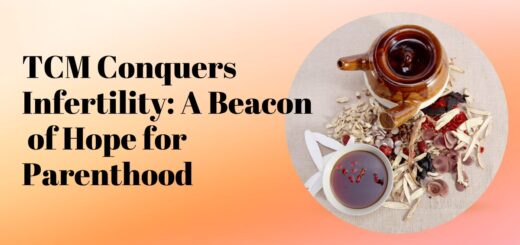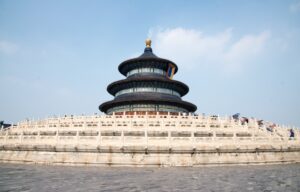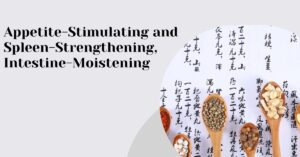Authentic Traditional Chinese Medicine (TCM) Weight Loss

Authentic Traditional Chinese Medicine (TCM) weight loss is a method based on TCM theories that combines internal and external treatments to achieve healthy weight reduction. TCM weight loss focuses on overall body regulation by balancing Yin and Yang, enhancing the flow of Qi and blood, and improving organ function. Key methods include pattern identification and treatment, dietary adjustment, acupuncture, herbal medicine, and exercise therapy.
Pattern Identification and Treatment
TCM emphasizes “pattern identification and treatment,” meaning personalized treatment plans based on the specific conditions of each patient. The causes of obesity are complex, involving multiple organ dysfunctions. Common obesity patterns include:
- Spleen Deficiency with Dampness Accumulation: Symptoms include fatigue, abdominal bloating, and loose stools. Treatment focuses on strengthening the spleen and eliminating dampness, using formulas like Ping Wei San and Shen Ling Bai Zhu San【1】.
- Stomach Heat with Food Retention: Symptoms include strong appetite, dry mouth, and constipation. Treatment focuses on clearing stomach heat and promoting digestion, using formulas like Liang Ge San and Huang Lian Jie Du Tang【2】.
- Liver Qi Stagnation: Symptoms include emotional instability, hypochondriac distention, and irritability. Treatment focuses on soothing the liver and relieving stagnation, using formulas like Chai Hu Shu Gan San and Xiao Yao San【3】.
- Kidney Deficiency with Water Retention: Symptoms include lower back pain, edema, and frequent urination at night. Treatment focuses on warming the kidneys and promoting urination, using formulas like Zhen Wu Tang and Jin Gui Shen Qi Wan【4】.
Dietary Adjustment
Dietary adjustment is an important component of TCM weight loss. TCM emphasizes “food and medicine sharing the same origin,” meaning health can be improved through dietary changes. Overweight individuals should avoid high-calorie, high-fat, and high-sugar foods and consume foods that clear heat, eliminate dampness, and strengthen the spleen, such as winter melon, coix seeds, and mung beans【5】. Additionally, consuming foods rich in fiber, such as vegetables, fruits, and whole grains, can promote bowel movements and reduce fat absorption【6】.
Acupuncture
Acupuncture is a significant method in TCM weight loss. By stimulating specific acupoints, acupuncture can regulate endocrine function, boost metabolism, and suppress appetite to achieve weight loss. Common acupoints include:
- Zusanli (ST36): Strengthens the spleen and stomach, and regulates Qi and blood【7】.
- Sanyinjiao (SP6): Regulates the liver, spleen, and kidneys, and promotes water metabolism【8】.
- Zhongwan (CV12): Regulates stomach function and aids digestion【9】.
Acupuncture’s mechanism for weight loss involves adjusting the endocrine system, enhancing metabolism, and reducing fat accumulation【10】. It also regulates the nervous system to suppress appetite and decrease food intake【11】.
Herbal Medicine
Herbal medicine plays a crucial role in TCM weight loss. Based on pattern identification, appropriate herbal formulas are selected to regulate organ function and promote fat metabolism. Common herbs include:
- Lotus Leaf: Clears heat, removes dampness, and reduces fat【12】.
- Cassia Seeds: Clears the liver, improves vision, and promotes bowel movements【13】.
- Hawthorn: Digests food stagnation and activates blood circulation【14】.
- Poria: Strengthens the spleen, eliminates dampness, and calms the mind【15】.
The principle of herbal weight loss is to regulate organ functions, enhance body metabolism, increase fat breakdown and excretion, and improve digestive system function to reduce food accumulation in the body【16】.
Exercise Therapy
Exercise therapy is also crucial in TCM weight loss. TCM believes that appropriate exercise can unblock meridians, promote Qi and blood circulation, and boost metabolism, thereby aiding weight loss. Common TCM exercises include Tai Chi and Baduanjin【17】. These exercises not only strengthen the body but also balance the mind, reduce stress, and promote overall Qi and blood circulation, achieving weight loss effects【18】.
Case Study
Below is a case study of successful TCM weight loss:
Patient: Female, 35 years old, weighing 70kg, height 160cm, BMI 27.3, classified as overweight. The patient reported gradual weight gain over the past two years, accompanied by fatigue, abdominal bloating, and loose stools. Diagnosed with spleen deficiency with dampness accumulation.
Treatment Plan:
- Acupuncture: Points ST36, SP6, and CV12, twice a week for 30 minutes each session【19】.
- Dietary Adjustment: Daily consumption of winter melon soup and coix seed porridge, and reduced intake of high-fat, high-sugar foods【20】.
- Herbal Medicine: Shen Ling Bai Zhu San, one dose daily, taken in the morning and evening【21】.
After three months of comprehensive treatment, the patient’s weight reduced to 62kg, BMI dropped to 24.2, and symptoms significantly improved. The patient’s energy levels returned, abdominal bloating and loose stools subsided, and overall health markedly improved【22】.
Conclusion
TCM weight loss emphasizes holistic body regulation and restoring balance to address obesity fundamentally. Compared to Western methods, TCM weight loss focuses on individualized treatment and long-term effects with fewer side effects. Through the combined use of pattern identification and treatment, dietary adjustment, acupuncture, herbal medicine, and exercise therapy, TCM weight loss can help individuals lose weight healthily and safely, improving their quality of life【23】.













